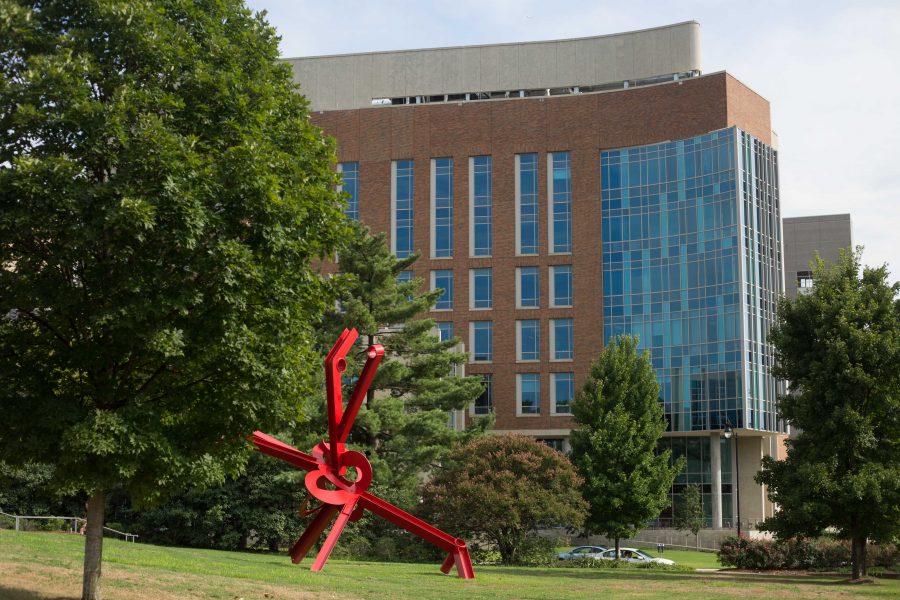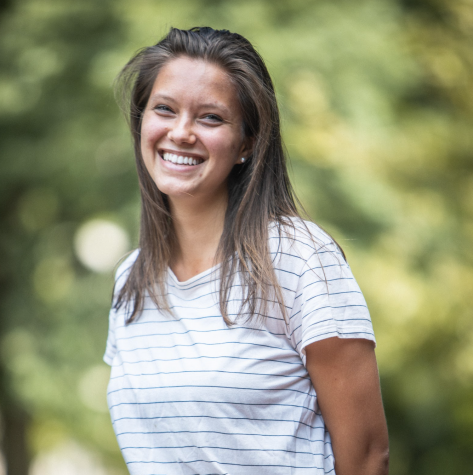With the help of a donation from the Frist family, Vanderbilt will take step forward toward inclusivity for the neurodiverse Nashville community.
A $10 million donation from Jennifer and William Frist will fund the building of a new center focused on autism research and career resources for individuals on the autism spectrum.
The Frist Center for Autism and Innovation will house and expand the Initiative for Autism, Innovation and the Workforce, which originated as a university-funded Trans-Institutional Program in 2017. Although the goals and community-based methods remain the same, the Frists’ donation provides the initiative with a physical location, the means to hire more personnel, and financial security in the near future.
The Frists came across the center last year during a wider effort to explore how to link autistic individuals with career development, as the couple has a teenage son diagnosed with autism, according to a Vanderbilt Research news article from November.
“These children have extraordinary abilities, but too often families worry about their future independence and employment. We believe the work of this center can help change that course for the better,” William Frist said in the article.
The Frists have donated previously to Vanderbilt; gate 2 of the Vanderbilt Stadium was named in their honor in 2011. This most recent donation, however, is the largest donation from the family, according to the Vanderbilt Research News article.
Dr. Keivan Stassun, Stevenson Professor in the Department of Physics & Astronomy at Vanderbilt, leads the center. In 2017 he brought Dr. David Caudel on to serve as the center’s executive director. Even though he had spent the past decade studying physics, Caudel hardly hesitated before accepting the position.
“I took about ten years worth of working and pretty much flushed it down the toilet,” Caudel said, “because I recognized that it was an opportunity to help my folks.”
Caudel wasn’t officially diagnosed with autism until his early thirties, but looking back he can see how autism deeply affected his childhood and adolescence. Now he strives to help those autistic individuals who lack meaningful and sustainable work.
“For every one of me that you find in scientific circles or mathematics or technology, there are another ten at home who were never able to get out of their parents’ basement,” Caudel reported. “There’s a tremendous need there.”
The Frist Center responds to this need in two ways. First, it aims to help individuals on the autism spectrum successfully enter the workforce in places where their unique abilities can be utilized and celebrated. Second, it strives to understand autism more fully from a scientific perspective.
Toward this end, the center plans to partner with researchers from six different laboratories on campus, as well as with at least nine external organizations, including Benton Hall Academy, Autism Tennessee, and UBS Financial Services.
This summer, the center partnered with Currey Ingram Academy to run a Workforce Readiness and Preparation Camp (WRaP), a summer camp for high school students on the autism spectrum. The month-long camp cultivated professional skills through mock-interviews, teamwork, and public speaking exercises. Now Caudel and his team are creating an online training course so that similar camps can be launched all over the country.
“Everything we do, anything we do that’s successful, we’re thinking about how do we export that. Because if the only population we serve is the Nashville population, we’re really letting down the rest of the country and the rest of the world,” Caudel said.
Reaching the larger community forms a crucial part of the center’s mission, but it also aims to involve the university itself.
“I think there will be more opportunities for students to be involved,” said Dan Burger, a web application developer who works in the center. “I always bring in students to help me with my work: research, programming, documentation, and videos.”
Burger first came to Vanderbilt in 2006 for his undergraduate degree in computer engineering. He now works at the center developing programs like the Filtergraph, a data visualization tool which the center uses to better understand how individuals on the spectrum understand data. The center also piloted the Visual Memory app, a tool which tests memory skills to help match individuals on the spectrum with fitting jobs.
Vee Basukala is a third year law student at Vanderbilt and a member of the Student Accessibility Advocates, a student-led organization working toward better inclusion of people with disabilities on campus. He sees the new center as an important step toward holistic accessibility at Vanderbilt.
“Mainly we are focused on racial diversity, socioeconomic diversity. Most universities and schools and institutions have realized the value of those kinds of diversities,” Basukala said. “But Vanderbilt’s initiative with this center for autism shows that there’s another kind of diversity that– if brought to the table –can bring a different perspective, which can be equally beneficial as the others.”
The Wond’ry, Vanderbilt’s innovation and entrepreneurship hub, will house the new center. Construction has already begun, and the Grand Opening is scheduled for Fall 2019.
“I think the Wondr’y will be a fantastic place [for the center] because the whole thing about the Wondr’y is design thinking,” Basukala said. He expressed hope that the center’s work would utilize the same design thinking, human-centered approach that other programs housed in the building use.
The Frist Center is a move in the right direction toward inclusivity on campus, and other steps should follow to continue the progress, Basukala said. This will include thinking about neurodiversity beyond autism.
“Today we’re talking about autism because it’s a buzzword and there’s a lot of groundswell. But it shouldn’t stop at autism,” Caudel said. “Autism is just one type of neurodiversity. Anyone whose brain works in an atypical manner– there is a conceivably a job or an environment in which they will thrive.”



